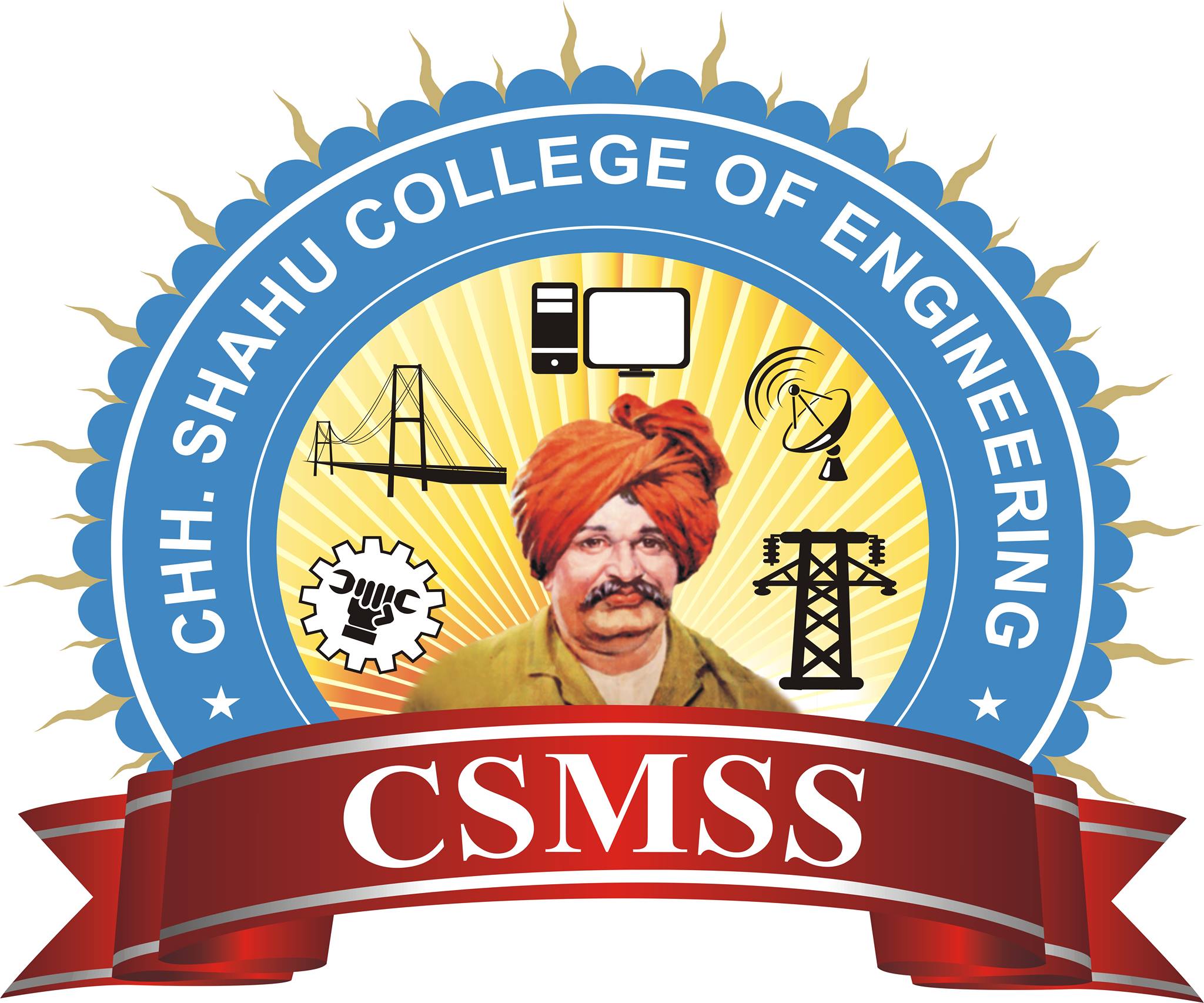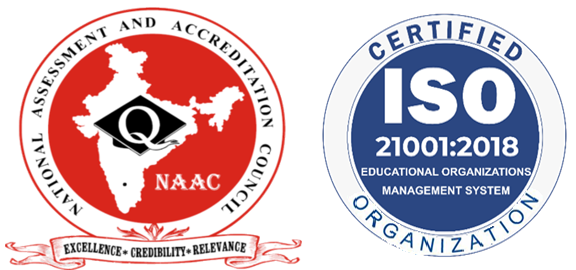DEPARTMENT OF SCIENCE & HUMANITIES (FIRST YEAR ENGINEERING)
About Department
Greetings, Students
Greetings from the First Year Engineering Department! We want to reassure you that you are joining a thriving and encouraging community that is committed to your success as you set out on this life-changing opportunity.
During the first year, you will learn how to think critically and solve problems while exploring basic ideas from various engineering fields. Our curriculum is intended to stimulate your creativity and curiosity and challenge you. Benefit from the practical projects and lab experiences that will make your education more interesting. We urge you to get involved and interact with your peers, and look for mentorship opportunities. Recall that, engineering is a collaborative field, and establishing relationships will enhance your academic career.
Our faculty and staff are here to support you every step of the way. Don’t hesitate to reach out for guidance, whether it’s academic advice or career planning. Embrace this year with an open mind, and take every opportunity to learn and grow. We are excited to see, how you will contribute to the engineering field and the innovations of tomorrow!
Best wishes for a successful and fulfilling year ahead!
Highlights
- Curriculum Overview
- Introduction to core engineering principles: Physics, Mathematics, Chemistry, and Communication Skills.
- Hands-on laboratory sessions to reinforce theoretical knowledge.
- Interdisciplinary courses that encourage collaboration across engineering fields.
- Student Support
- Mentorship programs pairing for first-year students with slow and advanced learners.
- Academic advising to help students navigate course selections and career paths.
- Workshops on study skills, time management, stress management and exam preparation.
- Projects and Labs
- Emphasis on team-based projects to develop problem-solving and collaboration skills.
- Access to state-of-the-art labs and equipment for practical experience through Engineering Exploration.
- Opportunities to participate in design challenges and competitions like BAJA, TIFFAN, and Avishkar competitions.
- Extra Curricular Activities
- Engineering clubs and organizations that focus on various disciplines (e.g., robotics, environmental engineering).
- Guest lectures and seminars by industry professionals.
- Demo session on Fire safety and disaster management, Food awareness.
- Networking events to connect students with potential employers.
Program Outcomes (PO’S)
Graduates will be able to :
- PO1: Engineering knowledge: Apply the knowledge of mathematics, science, engineering fundamentals, and an engineering specialization to the solution of complex engineering problems.
- PO2: Problem analysis: : Identify, formulate, review research literature, and analyze complex engineering problems reaching substantiated conclusions using first principles of mathematics, natural sciences, and engineering sciences.
- PO3: Design/development of solutions: Design solutions for complex engineering problems and design system components or processes that meet the specified needs with appropriate consideration for the public health and safety, and the cultural, societal, and environmental considerations.
- PO4: Conduct investigations of complex problems: Use research-based knowledge and research methods including design of experiments, analysis and interpretation of data, and synthesis of the information to provide valid conclusions.
- PO5: Modern tool usage: Create, select, and apply appropriate techniques, resources, and modern engineering and IT tools including prediction and modeling to complex engineering activities with an understanding of the limitations.
- PO6: The engineer and society: Apply reasoning informed by the contextual knowledge to assess societal, health, safety, legal and cultural issues and the consequent responsibilities relevant to the professional engineering practice.
- PO7: Environment and sustainability: Understand the impact of the professional engineering solutions in societal and environmental contexts, and demonstrate the knowledge of, and need for sustainable development.
- PO8: Ethics: Apply ethical principles and commit to professional ethics and responsibilities and norms of the engineering practice.
- PO9: Individual and team work: Function effectively as an individual, and as a member or leader in diverse teams, and in multidisciplinary settings.
- PO10: Communication: Communicate effectively on complex engineering activities with the engineering community and with society at large, such as, being able to comprehend and write effective reports and design documentation, make effective presentations, and give and receive clear instructions.
- PO11: Project management and Finance: Demonstrate knowledge and understanding of the engineering and management principles and apply these to ones own work, as a member and leader in a team, to manage projects and in multidisciplinary environments.
- PO12: Life-long learning: : Recognize the need for, and have the preparation and ability to engage in independent and life-long learning in the broadest context of technological change.
HoD Message
Dr. Satyawan L. Dhondge
Welcome to the Department of First Year Engineering at CSMSS Chh. Shahu College of Engineering, Chhatrapati Sambhajinagar.
It is a great honour to serve as the Head of Department for our first-year students, guiding bright young minds across Computer Science & Engineering, Artificial Intelligence & Data Science, Mechanical Engineering, Electronics & Computer Engineering, Electronics Engineering (VLSI & Technology), Electronics & Communication (Advanced Communication Technology), Civil Engineering and Electrical Engineering. Our department represents the foundation of engineering education, where students are introduced to core concepts, practical skills, and innovative thinking that will shape their future professional careers.
The first year of engineering is a crucial phase in every student’s journey. It lays the groundwork for advanced studies and provides exposure to multidisciplinary concepts, critical problem-solving skills, and hands-on learning experiences. Our curriculum is carefully designed to balance theoretical knowledge, laboratory experiments, and project-based learning, ensuring students develop a solid understanding of engineering fundamentals while cultivating creativity, analytical thinking, and teamwork.
Beyond academics, we focus on holistic development. Students are encouraged to participate in workshops, seminars, technical events, and extra-curricular activities to enhance leadership, communication, and organizational skills. Our experienced faculty members are committed to mentoring students, addressing individual learning needs, and motivating them to strive for excellence in all areas.
As the HOD, my vision is to create a nurturing and intellectually stimulating environment where students not only achieve academic success but also grow as responsible, innovative, and ethical engineers ready to contribute to society. I invite all first-year students to take full advantage of the opportunities, resources, and guidance available here and embark on their engineering journey with enthusiasm and curiosity.
Together, we aim to build a strong foundation for a future of innovation, knowledge, and professional excellence
Course Offered (B.Tech)
| UG Courses |
Intake |
Durations |
| Computer Science & Engineering |
180 |
4 Years |
| Artificial Intelligence and Data Science |
180 |
4 Years |
| Electronics and Communication engineering (Advanced Communication Technology) |
60 |
4 Years |
| Civil Engineering |
60 |
4 Years |
| Electrical Engineering |
60 |
4 Years |
| Electronics and Computer Engineering |
120 |
4 Years |
| Mechanical Engineering |
120 |
4 Years |
| Electronics Engineering (VLSI Design and Technology) |
60 |
4 Years |
Laboratories
The department has following laboratories.
Laboratory Name
- Engineering Physics Laboratory
- Engineering Chemistry Laboratory
- Engineering Mechanics Laboratory
- Engineering Communication Skills Laboratory
For More Laboratory Details :
Click Here
University Syllabus


